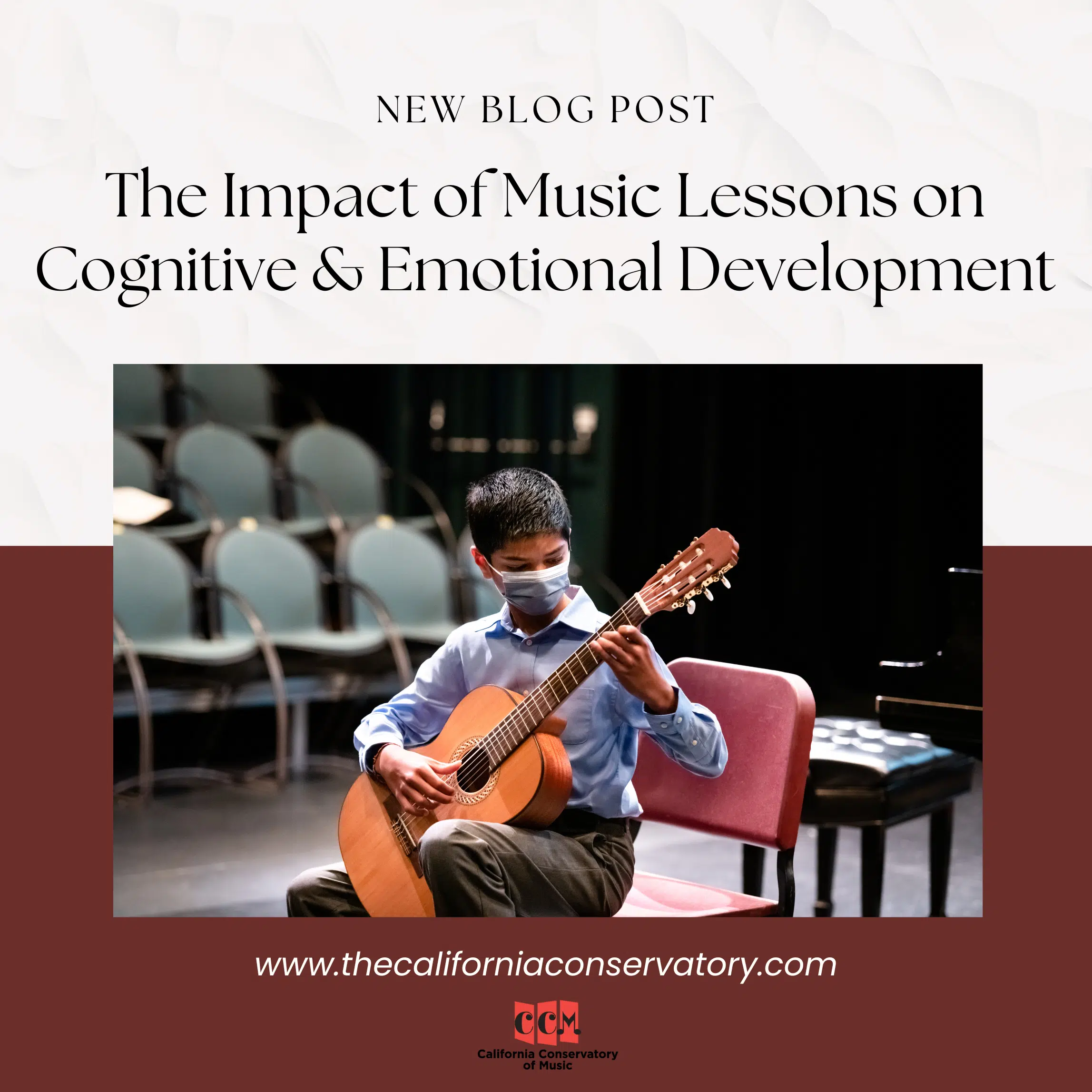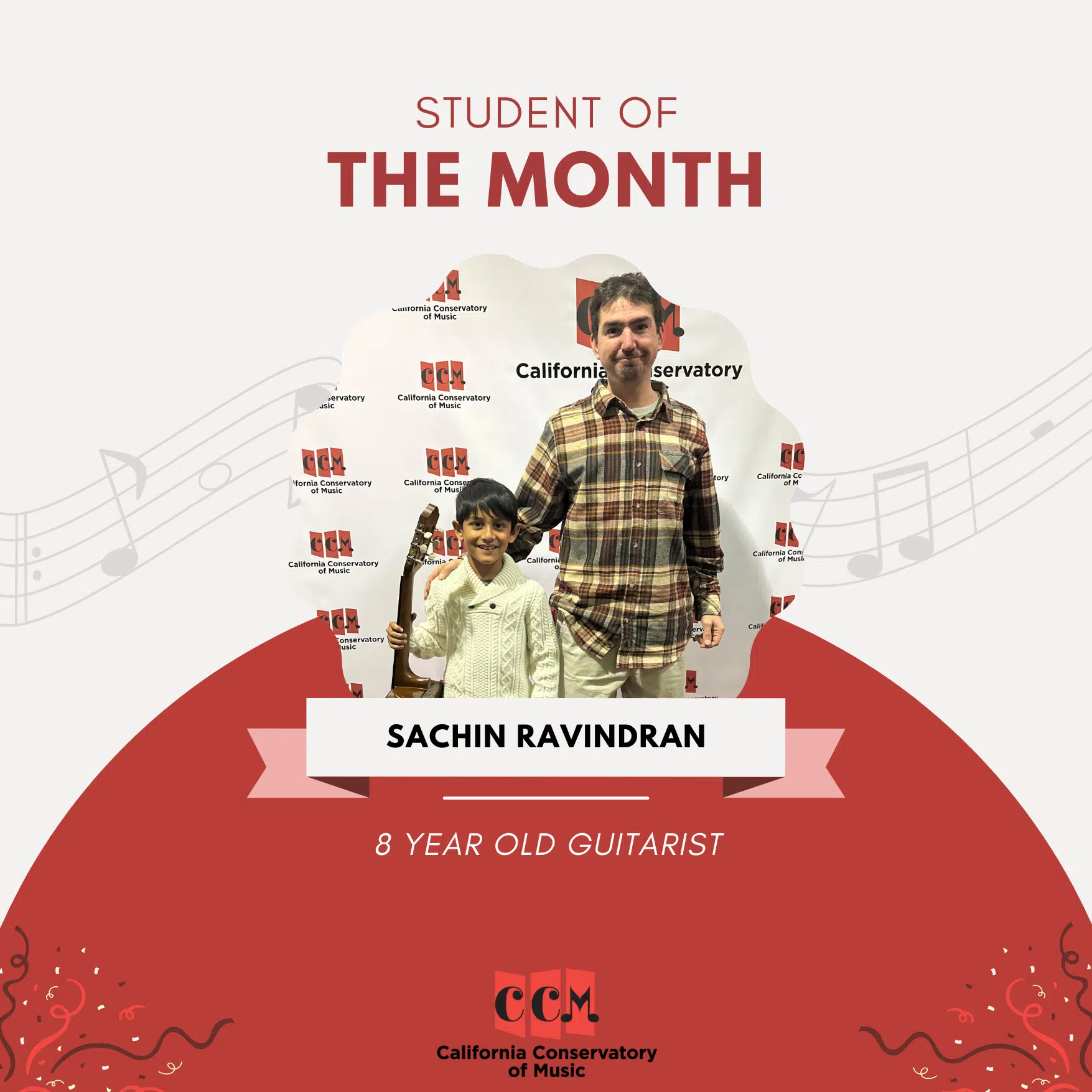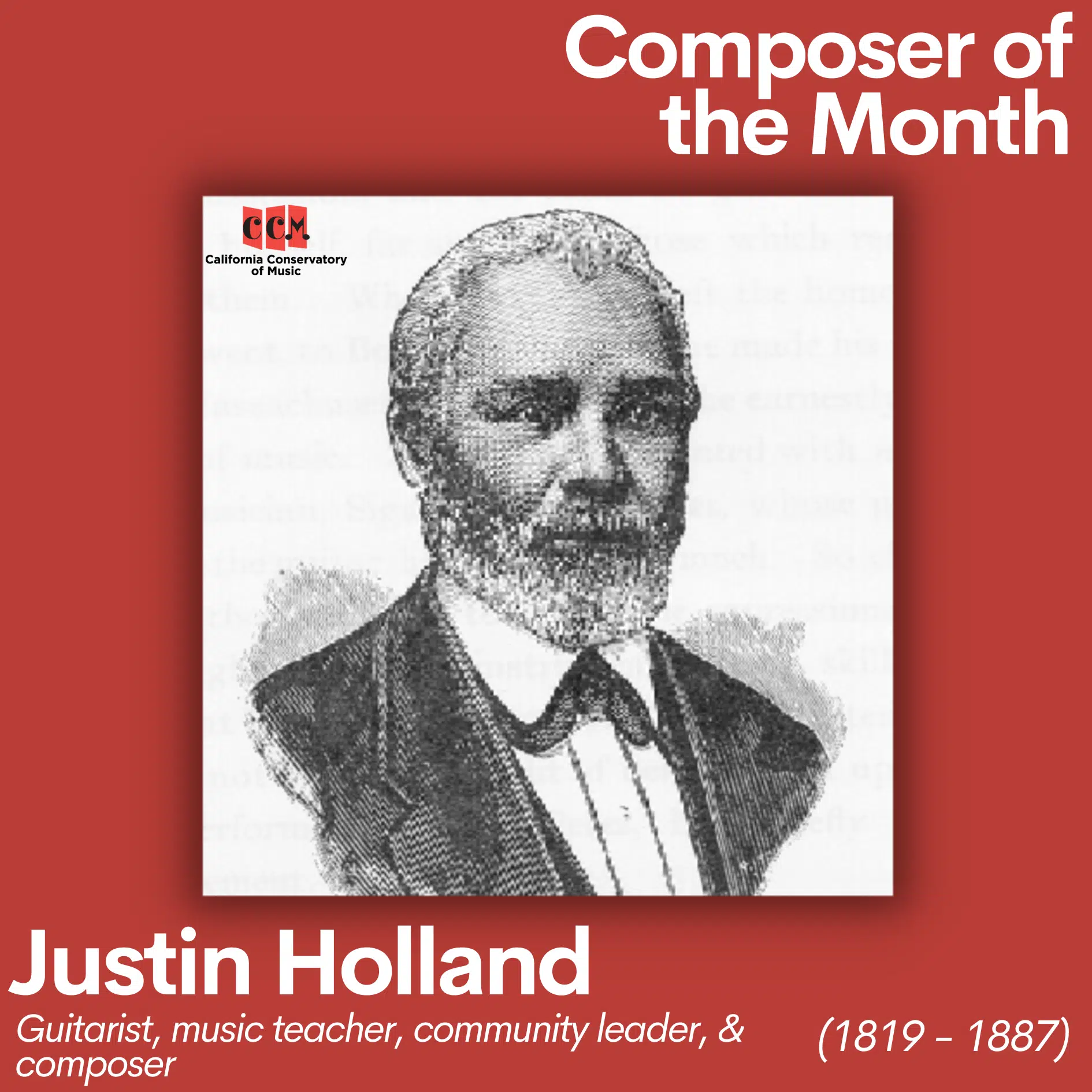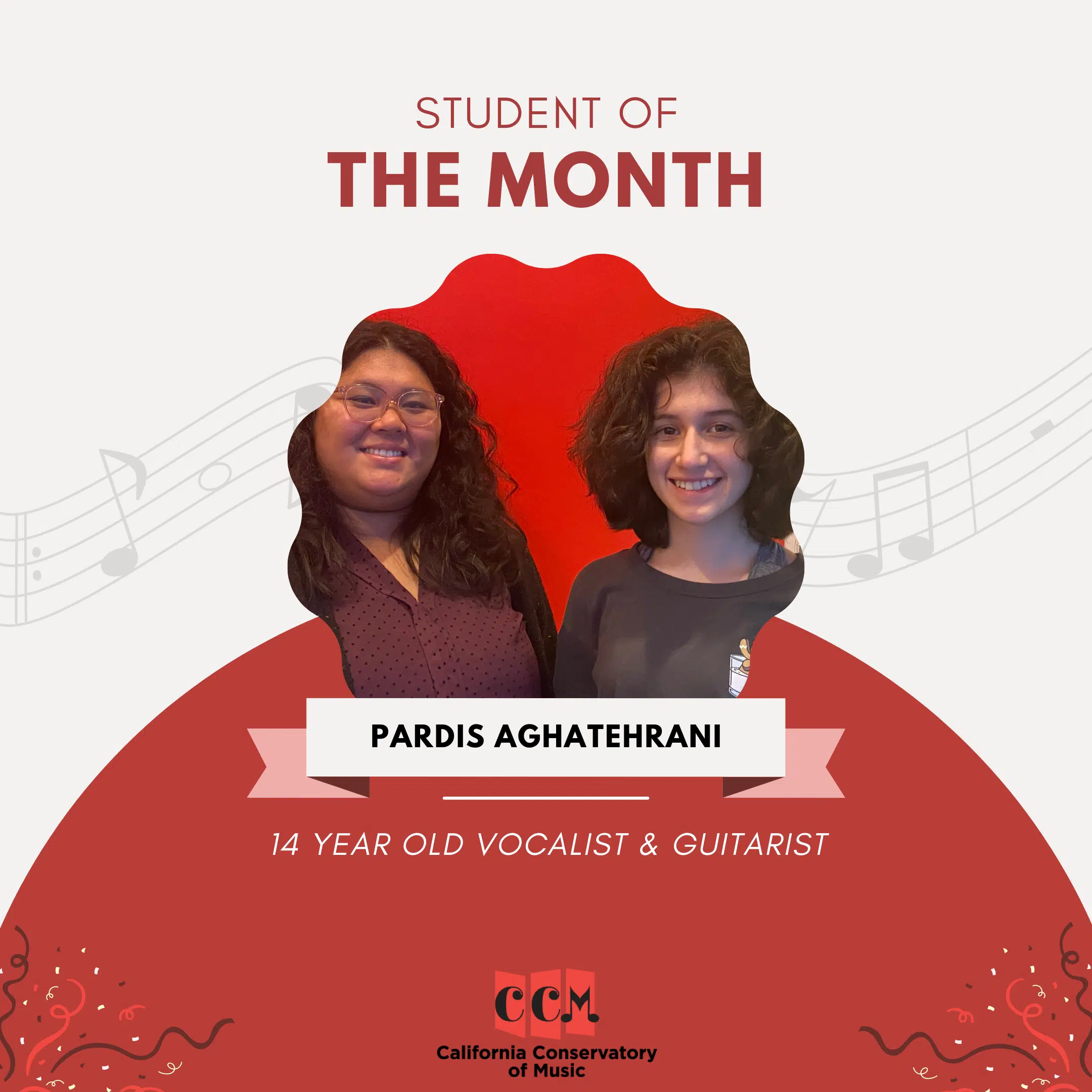Check out the video blog below on the benefits of music or continue reading for the full blog!
Music education is a fun and enjoyable experience for children, but also has a beneficial impact on their cognitive development and academic performance. Many studies have shown that having regular music lessons can improve skills, such as memory, attention, and spatial-temporal reasoning. Read below for more info on the benefits of music!
Spatial-temporal reasoning helps with mental rotation and visualizing the movement of objects, which can be exceptionally useful for math and science. Research findings also suggest that music lessons can help children develop more effective problem-solving and critical-thinking skills.
Additionally, music lessons have a direct correlation with academic performance. Studies have shown that children who received regular music instruction for at least one year scored higher on reading and math tests compared to those who did not take music lessons.
Children’s memory and attention skills are also improved with music instruction. Musicians have a better working memory capacity than non-musicians and this is due to the fact that playing music requires a lot of focus and concentration. This is instilled through regular practice and paying close attention to the notes and rhythms. Over time, this can help improve the ability to focus and retain information, which assists in successful learning in other subjects as well.
Music lessons don’t only impact cognitive skills, they also positively affect children’s emotional well-being. Playing an instrument instills confidence and good self-esteem for children. Performing in front of an audience gives them the opportunity to showcase their skills and take pride in their accomplishments. This helps build their confidence and make them feel more self-assured, which ensures a positive well-being overall.
If you’re looking for a way to help your child grow and develop, consider enrolling them in music lessons today at the California Conservatory of Music.
Sign up for a free lesson here!
References:
“Frontiers in Psychology” (2014)
“PLoS ONE” (2011)
“Journal of Neuroscience” (1997)
“Frontiers in Neuroscience” (2015)
Subscribe to our YouTube Channel for more!
This February, we’re excited to feature CCM guitar student, Sachin Ravindran, as our February 2023 Student of the Month! Sachin has been taking guitar lessons at CCM for around 4 years. He currently studies at CCM’s Redwood City location with Teacher Chris. Sachin is committed to daily practice and is always making consistent improvements!
Student of the Month – Pardis Aghatehrani
What is your name?
My name is Sachin Ravindran.
How old are you?
I am 8 years old.
Who is your teacher?
My teacher is Chris Mann.
How long have you been taking guitar lessons?
I have been learning guitar for almost 4.5 years.
What advice would you give to a guitar student just starting out at CCM?
Learning a new instrument requires a lot of practice. It might feel hard at first but keep practicing and you will see yourself getting the hang of it.
What piece are you looking forward to learning someday?
I am excited to start Suzuki book 5 soon and look forward to learning Allegro Vivace by Mauro Giuliani because it is a very long piece that has many eighth and sixteenth notes and I want to get better at playing faster pieces.
What is your favorite thing about playing guitar?
I really enjoy learning how to play arpeggios because they help me play a song faster and I find that fun. My favorite song is Allegro by M. Guiliani in Suzuki book 4.
What is your favorite food?
My favorite foods are tacos and pizza.
Do you have a pet?
I don’t have any pets but would like to have a dog.
Do you play any sports or do any other activities outside of music lessons?
In addition to guitar, I take swim lessons and play basketball.
What do you want to be when you grow up?
I want to be an athlete when I grow up, either a football or a basketball player.
What is your most memorable experience at CCM?
My first concert was my most memorable experience because it was on my dad’s birthday. I played Perpetual Motion from Suzuki book 1 and I remember being so nervous about performing in front of everyone. My dad sat with me until I performed and helped calm my nerves.
……………………………………………………………………………………………………………………
Parent Spotlight – Madhavi Ravindran
Regarding guitar instruction, what are you most proud of your child accomplishing?
Sachin has gained a lot of confidence when he plays guitar and performs. I am proud that he has a positive attitude when it comes to tackling hard pieces and is always willing to put in the extra effort to fix his mistakes and perfect a song.
What advice would you give a new parent starting in the program?
I know getting your child to practice regularly can be a bit stressful and tedious, but it has been an additional way for my son and I to bond. Although I did not learn an instrument growing up, I love music and have learned so much about guitar through Sachin. So much so that I am equally excited about the next piece he is learning and that makes him more motivated to practice.
Why did you decide to give your child a musical upbringing?
Music, in any form, has always been something my husband and I wanted our kids to learn since there are so many benefits to child development. When Sachin was a baby he always gravitated towards the guitar in his toddler music lessons or at home with his toy musical instruments. He really enjoyed being goofy on the guitar and serenading his sisters that we decided early on to start formal guitar lessons.
For Black History Month, we’re exploring one of the earliest American guitar virtuosos — Justin Holland. Holland built a steady musical career as an arranger, composer, and performer, all before the turn of the Civil War.
Many people say Holland was one of the most important guitarists of his generation, avidly endorsing Christian Frederick Martin, who built and distributed the ever-popular Martin Guitars.
Justin Holland’s Personal Life
Holland was raised in Norfolk County, Virginia, and was the son of a farmer. When he was young, he showed a clear talent for music, even though there were few musical opportunities in his area. Luckily, he attended church, where he was able to hone in on his musical abilities.
Holland moved to Boston after his parents passed away when he was 14, though ended up staying in Chelsea, Massachusetts for a few years. It was here that he met Spanish musician and guitarist, Mariana Perez, who taught Holland how to play the guitar.
Perez ended up being one of Holland’s most prominent musical influences, alongside Simon Knabel, who was one of the members of the Ned Kendall’s Brass Band, and William Schubert.
Holland noted that Schubert was a “brilliant” guitarist and performer, helping him make tons of progress on his instrument.
Because Holland was young and did not have the support of his parents any longer, he worked for many years as a laborer while perfecting his craft.
When he was 20 years old, he attended Oberlin College in Ohio, staying there for two years before traveling to Mexico to learn Spanish, as well as more about the Spanish guitar methods. It was during this time that Solomon Northrup, a fellow musician and fiddle player, was abducted by slave traders while in Washington D.C. Northrup was the man who wrote about his 12 years in bondage in Twelve Years a Slave.
In 1845, he returned to Oberlin and got married, becoming the “first black professional” in Cleveland.
He taught guitar lessons in Cleveland, seeing high demand for his services. During this time, he also wrote 20 pieces, including Flowers of Melody, Bouquet of Melodies, Gems for the Guitar, and Winter Evenings, all of which became nationally known. Beyond that, he arranged 30 duos for guitar and violin, as well as 30 duos for guitars.
Holland was very conservative in his approach to teaching, gathering a lot of influences and traditional techniques from European guitar masters. He later compiled his teachings into books, including Modern Method for the Guitar (1874) and Comprehensive Method for the Guitar (1876).
Beyond his time as a musician, teacher, composer, and arranger, he was very involved in the American Civil Rights movement. He helped many African Americans throughout the Underground Railroad and corresponded with European masonry groups for recognition and support.
Holland was eventually appointed assistant secretary to the National Negro Convention in 1848. He believed in emigration, similar to his colleague Frederick Douglass, which is why he relocated his family to the West Indies after Haiti offered assistance in 1858. However, after not finding many opportunities for himself in Haiti, he returned to Cleveland.
Holland passed away in 1887, achieving a remarkable measure of success in his short time on earth. His legacy was stamped on civil rights advancements and the development of American guitar playing.
The Influence of Justin Holland’s Music
While it was his playing that garnered him plenty of attention during his lifetime, it was his writing that helped him stand the test of time. After publishing Holland’s Method in 1876, which was the very first and one of the finest guitar instruction methods published during the nineteenth century, he solidified his place as one of the American greats.
Notable Facts
Holland was accepted into Oberlin after the college’s decision to allow African American students to attend in 1835. This was thanks to Asa Mahan, a renowned social reformer and clergyman who became the first president of the institution, arguing strenuously in favor of equal education for all.
Holland showed considerable talent at the young age of eight. He used a small book of verses as a foundation on which to write accompaniments for.
Holland’s set of Scraps from the Operas Arranged For Two Guitars became some of the biggest hits in the mid-1800s.
This January, we’re happy to feature CCM voice student, Pardis Aghatehrani, as our January 2023 Student of the Month! Pardis has been taking voice lessons at CCM for about 4 months. She currently studies at CCM’s Redwood City location with Teacher Chynna. Plus, Pardis has been taking guitar lessons at CCM for just over 5 years! Pardis is always prepared for her classes and did so amazingly at the last recital!
Student of the Month – Pardis Aghatehrani
What is your name?
My name is Pardis.
How old are you?
I am fourteen years old.
Who is your teacher?
My teacher is Teacher Chynna.
How long have you been taking voice lessons?
I’ve been taking voice lessons for almost four months now.
What advice would you give to a voice student just starting out at CCM?
I would probably say that they should practice whenever they can, since voice lessons don’t need much more than your own voice to practice, and to find the fun in it. It might feel a bit weird singing around the house or by yourself in your room at first, but over time it can become one of the most fun parts of your day.
What piece are you looking forward to learning someday?
Some pieces that I look forward to hopefully learning someday would probably have to be “Defying Gravity” from Wicked, or “Candy Store” from Heathers, but that would be far, far in the future. Another fun option could be anything from Taylor Swift’s discography.
What is your favorite thing about singing?
My favorite thing about singing is that it’s fun, it can feel euphoric at times when you can just let your voice go free.
What is your favorite food?
My favorite food is Persian food in general.
Do you have a pet?
Not really, but we have some chickens and bees in the backyard.
Do you play any sports or do any other activities outside of music lessons?
I play volleyball, guitar at CCM and am in a musical outside of my voice lessons.
What do you want to be when you grow up?
Okay, big question, and I don’t really know, I’m just trying to set myself up to have options in the future, but being a Broadway actor could be fun, or maybe working in renewable energy.
What is your most memorable experience at CCM?
My most memorable experience at CCM would probably have to be my first voice recital. It had not been my first recital, nor my first time singing in front of a crowd, but it was the first time in which I had been singing into a microphone like that, and my first time having a voice teacher like Chynna there to help me.
……………………………………………………………………………………………………………………
Regarding voice instruction, what are you most proud of your child accomplishing?
She enjoys singing and has gained confidence since she started the course. Interactive and learning from Ms. Chyna has created significant passion about singing in Pardis, and also enhanced Pardis’s performance in other similar activities such as the musical show at the school.
What advice would you give a new parent starting in the program?
It is a great activity for students to attend. It boosts their confidence and helps the students enjoy their natural talent in using their voice.
Why did you decide to give your child a musical upbringing?
She is passionate about music as it helps her to express her feelings in a beautiful manner.
It’s truly a special role that music teachers play as they develop lifelong musical passions for their students.
However, when it comes to young children, it can often be quite difficult to decipher the difference between passion and enthusiasm. Of course, while enthusiasm for an instrument can certainly blossom into a lifelong passion, providing the perseverance and motivation that are all too necessary to master an instrument, you must ask yourself a few questions before enrolling your little ones in music lessons.
Is It Too Soon?
In reality, there is no such thing as “too soon” to begin your child’s musical education. Just think of mothers who play music for their child while they are pregnant with them. They’ve got to be onto something, right?
Music is one of the most beneficial neural development tools no matter what age you are. However, it can be exceptionally beneficial for those who are young and in the early stages of development.
Of course, the true question is,
Are you able to place a guitar into the hands of a two-year-old and expect them to know how to play it?
Well, one thing to note is that you don’t need to provide children this young with a formal music education for it to be beneficial. Simply teaching your toddler music through banging out rhythms on a drum or playing simple chords with them on a piano can be enough.
Home lessons are the best way to introduce music to your little one. This is the same reason why there are so many music-based toys for babies and tots. They help to build a foundation that can eventually introduce them to more formal music education.
What Is The Right Age For Music Lessons?
People often ask us if there is some “golden” age that is perfect for starting music lessons.
The answer is yes and no.
All children are different, developing differently at different ages. Some children will develop cognitive skills, higher EQs, advanced motor skills, and improved concentration ability much faster than others.
The “gains” in regard to these skills are highest between the ages of 2 and 9.
More often than not, your child’s brain will have the developmental capacity for music lessons by the time they turn 3.
However, it’s worth noting that while they might have brain circuits ready to digest information, they may not be emotionally mature enough to focus and concentrate during a music lesson. Plus, depending on the instrument they want to play, they may not be ready for it.
In the case that you believe your little one is ready for music lessons by the time they turn 3, you’ll probably be able to find small guitars or violins for them to try out. Drums and singing are good places to begin, as children aren’t limited to size with these instruments.
Though his instrument was slightly smaller than the pianos of today, Mozart began his Pianoforte journey when he was only three!
Ask the majority of piano teachers, however, and they’ll probably tell you that it’s best to start teaching kids when they can fit their hands over the keys, an age that usually falls somewhere between 4 to 6 years old.
Will My Child Like Music Lessons?
You might also be thinking,
What about all the people I know that have disdain for their parents for making them endure arduous weekly piano lessons throughout their younger years?
It’s important to note that lessons will be difficult if a student has no interest in the instrument, regardless of their age. If you have a child that wants to play guitar, though you force them to play piano instead, they might end up resenting the experience.
Your best bet is to expose your little one to a wide range of instruments and see which one they gravitate toward. Doing so will increase the “excitement” factor and remove any potential resentment they may have later down the line.
Final Thoughts – Should I Put My Child In Music Lessons?
Music lessons are great for improving neural development, especially from ages 2 to 9. Just make sure that you allow your child to select the instrument they want to learn to make sure they are having a good time learning.
It’s also crucial to pick a music teacher who is engaging and has experience teaching young children, as the wrong teacher can make for a negative experience.
Want to get your child started with music lessons? Contact the California Conservatory of Music to inquire about guitar, piano, violin, and/or voice lessons in both Sunnyvale and Redwood City.
Joseph Haydn was one of the most iconic 18th-century composers, commanding the respect of audiences and fellow composers and musicians across Europe, and more specifically, Austria. Not only was he an incredible composer in his own right but he also mentored some of the best composers of eras after, such as Beethoven and Mozart.
Throughout his life, he composed several fascinating works throughout a wide variety of genres, though during his lifetime, the Baroque style was certainly the most dominant.
While most of his early life remains obscure, as well as much of his professional life in Vienna, there is a lot of information worth highlighting.
Let’s dive in and learn more about the “Father of the String Quartet,” Joseph Haydn.
Joseph Haydn’s Personal Life
While little is known about Haydn’s early life, we do know that he auditioned with the St. Stephen’s Cathedral to become a choirboy in 1739, when he was only seven years old. He spent a good portion of his early life here in the central part of Vienna.
By 1740, he moved to Kapellhaus, where he lived with four other choir boys, one of which was his younger brother Michael, and Kapellmeister Georg von Reutter.
During his time as a choirboy, he learned Latin, as well as how to play a number of instruments, including violin and keyboard. There is plenty of discussion regarding the intensity of his training as a choirboy, though there are accounts from Haydn noting that he did not have any studies regarding composition or music theory.
He stopped singing in the choir in 1749 when his voice dropped and spent the next eight years of his life living in a small room next to St. Michael’s Church. He made many valuable contacts during this period, and by 1752, he became the accompanist of Nicola Porpora.
In 1759, Haydn became the musical director for Count Karl Joseph Franz Morzin, who lived in Vienna. However, most of his musical work took place in Lukavec, which later became the Czech Republic. It was in this town that Haydn composed several wind ensemble divertimentos and his very first symphony.
In 1760, Haydn married Maria Anna Keller, with whom he remained married until her death in 1800. When Count Morzin let go of Haydn due to financial difficulties, he was offered the vice conductor position by Prince Paul Anton Esterhazy. This was an extremely prestigious position for such a young composer, as Esterhazy was one of the top figures in a very powerful and noble Hungarian family.
Haydn would continue working with Esterhazy for three decades. Though he had to conform to a rigid code of conduct while working with Esterhazy, he was able to publish and distribute a number of works throughout the 1780s.
By 1793, he purchased his former suburban home in Haydngasse 19. He would live in this home for 12 years and produce some of his most famous works, including iconic oratorios like “The Creation” and “The Four Seasons.”
Haydn died at the age of 77 in Vienna, not long after Napoleon launched a number of attacks on the city.
The Influence of Joseph Haydn’s Music
Haydn influenced a number of contemporary composers, and that influence was often mutual. He was praised for his talents by Mozart, who clearly drew inspiration from several of his works. Beethoven also studied with Haydn for quite some time.
Without Haydn, European music would have never evolved with string quartets, symphonies, and keyboard sonatas.
“The Creation” was one of his most iconic pieces, in which he painted a vivid musical portrait surrounding the creation of Adam and Eve. As for his string quartets, “String Quartets, Op. 33” became one of his finest. One of them was given the nickname ‘The Bird’ for the fact that the violin part sounded so much like a bird song.
Notable Facts
Haydn sang in the choir during his younger years as a boy soprano. Because girls and women weren’t very involved in music during the 18th century, young boys would take over the higher parts.
Haydn wrote over 100 symphonies in his lifetime, giving him the nickname, “The Father of Symphony.”
Mozart used to refer to Haydn as ‘Papa Haydn,’ as he mentored him through his rise to fame.
Haydn moved to London after his time working with the Esterhazy family, though he did not know a lick of English.
During his lifetime, he was the most famous composer in the world.
You’re probably here because you understand the benefits that children can attain from learning to play a musical instrument. From creativity to abstract reasoning and beyond, children with musical training have better listening skills and are able to cope with challenges they run into more easily.
If you’re trying to help your child explore music and find the right instrument to learn, then you’ve come to the right place. Come dive in as we explore some of the top instruments for children.
Hand Percussion
We usually like to start very young children off with hand percussion, including rattles, hand drums, shakers, and bells. These instruments are easy to pick up and allow young children to begin making music instantaneously. One of the main benefits of these instruments is that they teach children coordination.
Xylophone
Young children have the ability to recognize melody before they understand language. One of the beauties of the xylophone is that any child can pick it up and play it. Plus, most xylophones have bright colors to give children a better visual for notes.
Ukulele
Ukulele is the happiest instrument around, great for livening up a child’s musical abilities! Not only are nylon strings very easy on small fingers, but it’s also a very low-cost instrument. Children can bring it just about anywhere to practice or play!
Piano
There’s no denying that piano has many benefits. It’s probably why people have been learning how to play piano as kids for hundreds of years now. From lowering stress to developing fine motor skills to enhancing concentration, the piano is an excellent choice. Plus, your child will have a much easier time if they ever decide to get into composing or producing.
Recorder
Young children benefit greatly from learning to play the recorder, which is why you often find it in elementary school classes. It teaches coordination and breathing techniques, all while being much easier to play than other wind instruments. If your child eventually wants to play the flute, saxophone, or oboe, starting them off with the recorder to get a feel for it is a good idea.
Drums
Many parents shy away from introducing their kids to drums, as drums can be extremely loud and obnoxious. Plus, many people don’t have room to store full drum kits in their houses. The good thing is that there are plenty of unique electronic options available for kids who want to play drums but don’t have a place where they can play loudly.
Many electronic drum kits are cheaper than regular drum kits and can be loaded up with new and exciting sounds.
Guitar
What’s cooler than being able to play the guitar?
Certainly, ask most kids, and they’ll tell you that the guitar is the coolest instrument around. Unlike many instruments, the guitar has a very wide range. Your child might choose to go the electric route, picking up a Fender Strat and a little amp. They might decide they like a steel-string acoustic guitar. Maybe, they’ll want to play a nylon string classical.
The beauty is that the skills on just one of these guitars are easy to translate to the others.
Violin
While the violin is certainly a challenging instrument to play, it is great for children that have discipline. If they can push through the difficulty of learning how to play the violin, they will develop excellent pitch, perseverance, and coordination skills.
Trumpet
When it comes to brass instruments, the trumpet is the best one for beginners. Trumpet can teach proper breath control, though it requires the ability to hold their instrument in place for a long time, which is something to consider.
While trumpets can be very loud instruments, there are mute devices that you can purchase so your child can practice quietly when they need.
Flute
The flute is one of the most beautiful sounding instruments on the planet, though it requires tons of patience and hard work to master. Not only is it like the trumpet in that kids must hold their arms in a single position for a long time while playing, but it also requires very focused breath control.
The great thing about the flute is that it is a wonderful crossover instrument choice for other wind instruments, such as the oboe or the clarinet.
Final Thoughts
At the end of the day, the choice should be up to your child. However, we recommend presenting them with these options so they can feel inspired and motivated to make a choice that they’ll stick with forever.

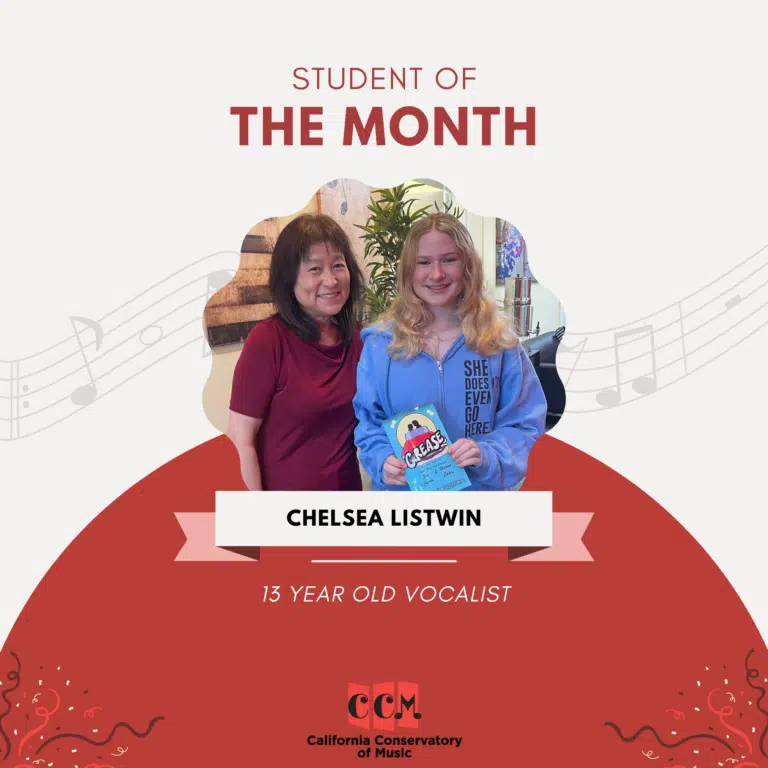
![ComposerMusician of the Month [POST] (1) Tania León composer of the month](https://thecaliforniaconservatory.com/wp-content/uploads/elementor/thumbs/ComposerMusician-of-the-Month-POST-1-1-qmty6wxa1r6clq4nn2djflsue696xsgu4bjn2gm8og.png)

